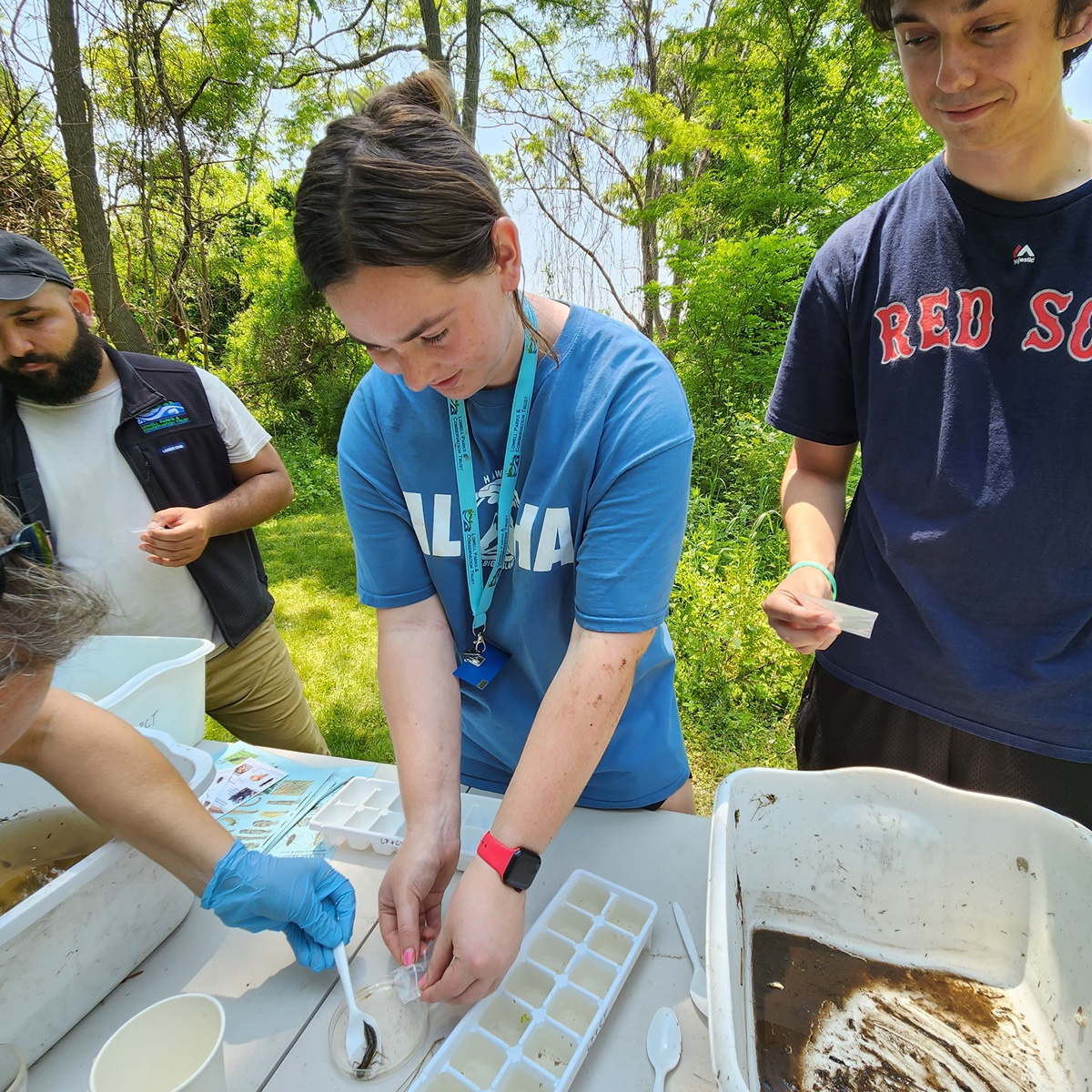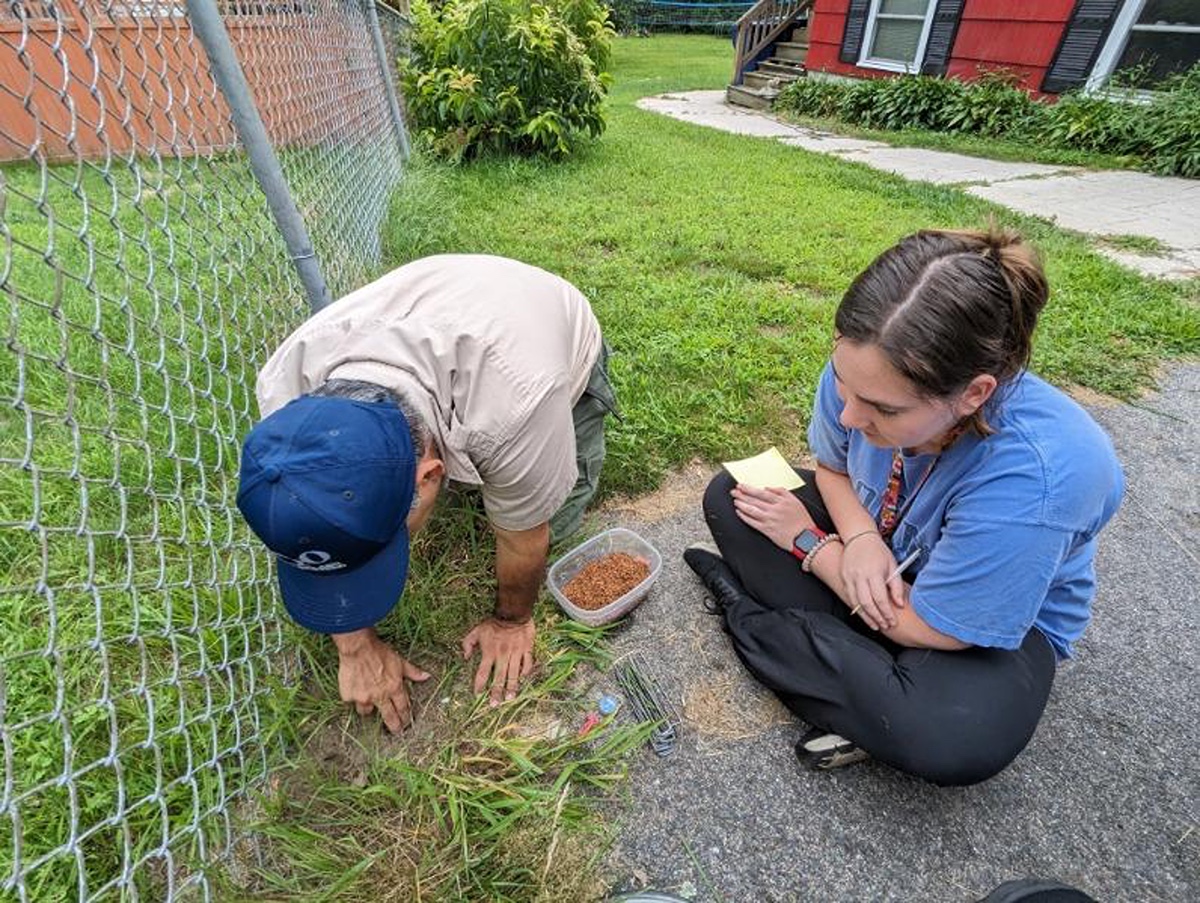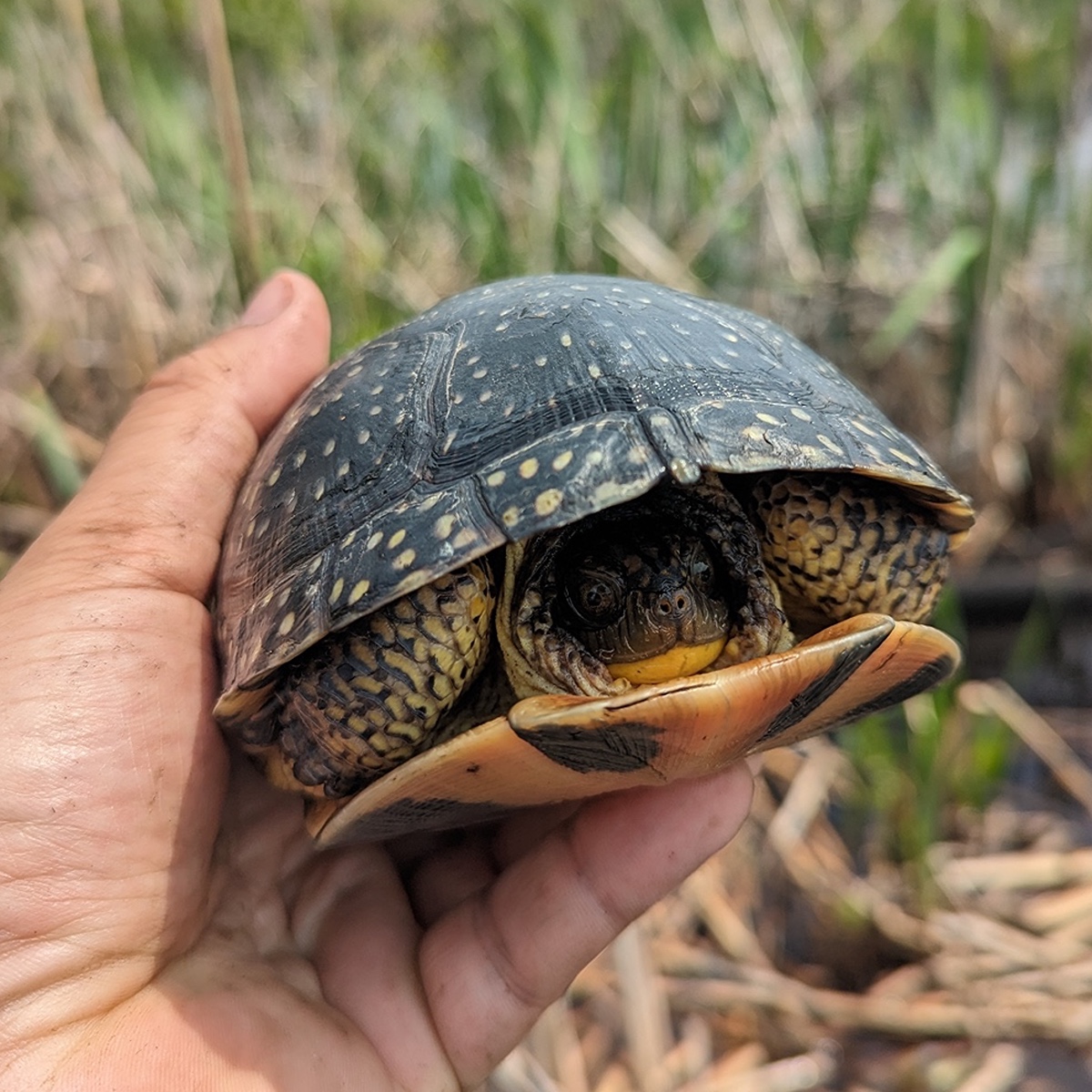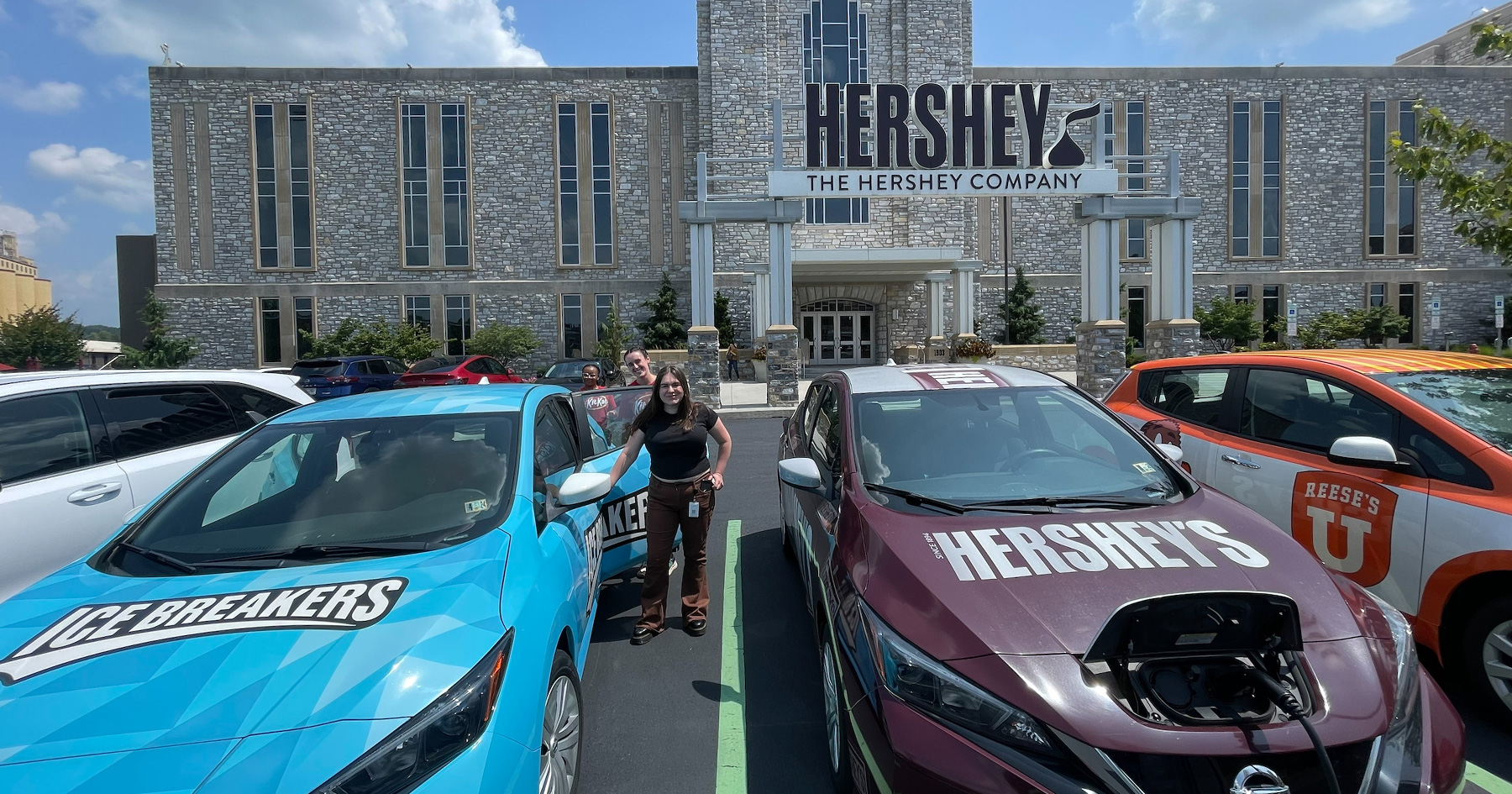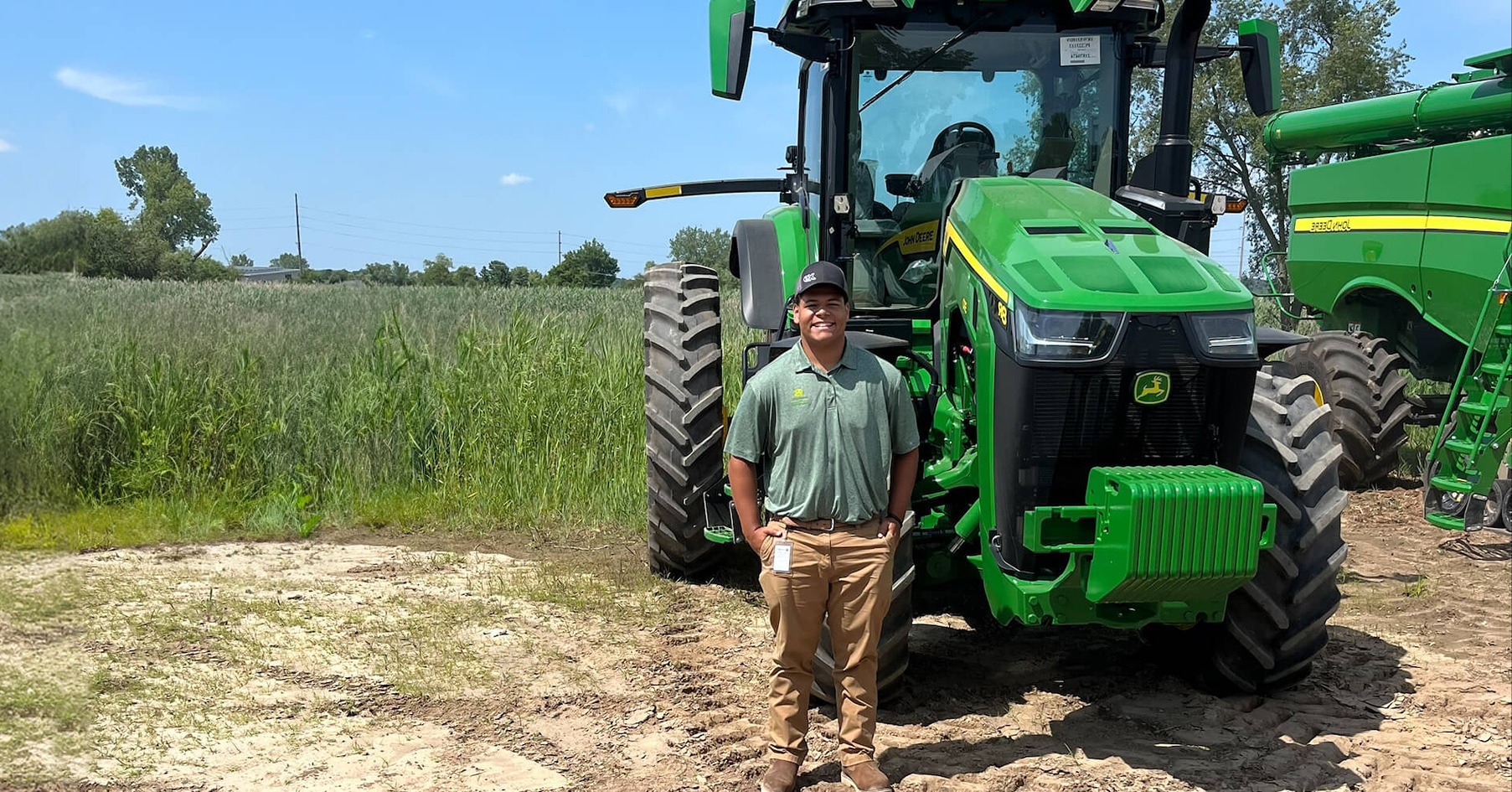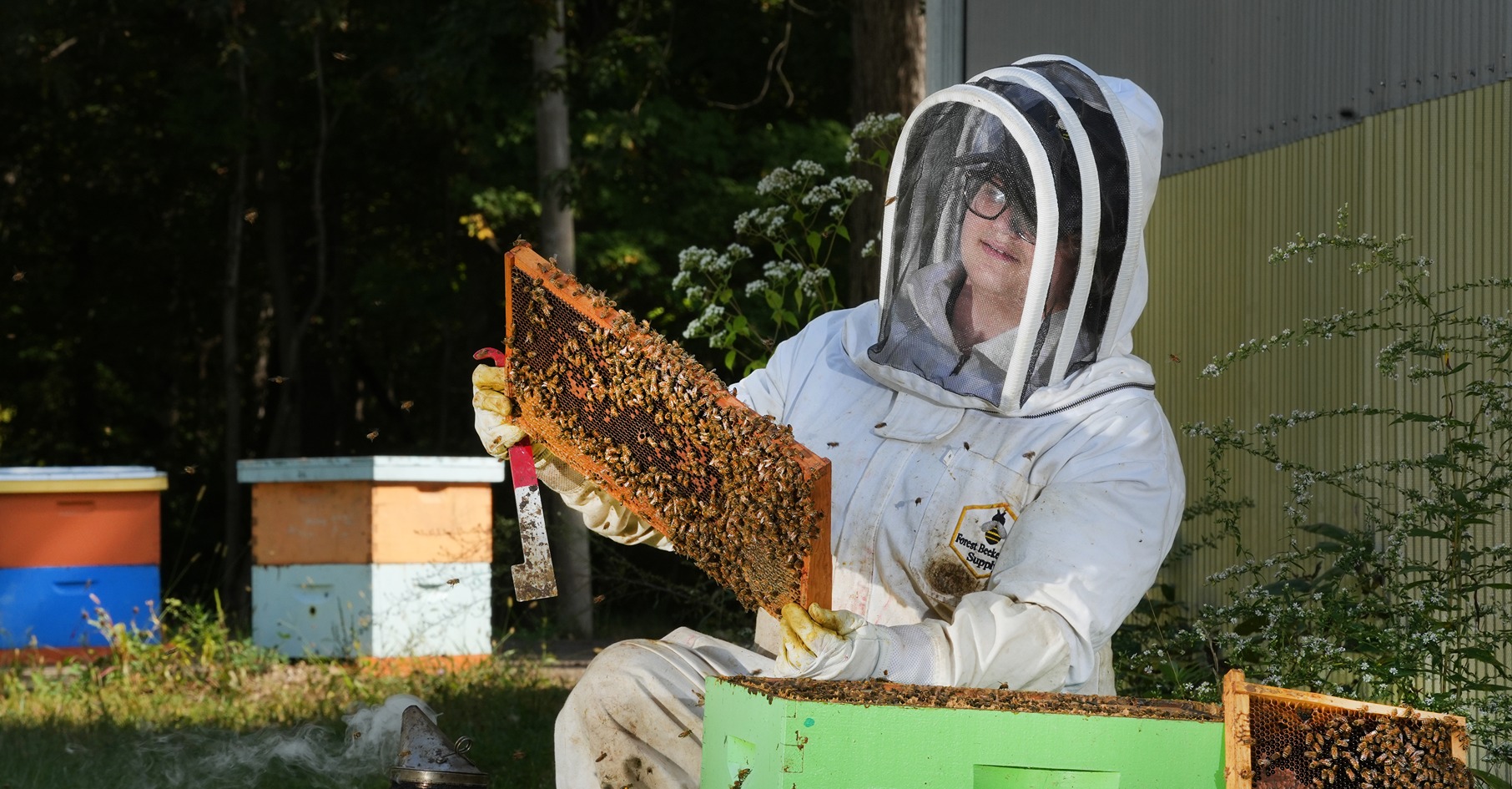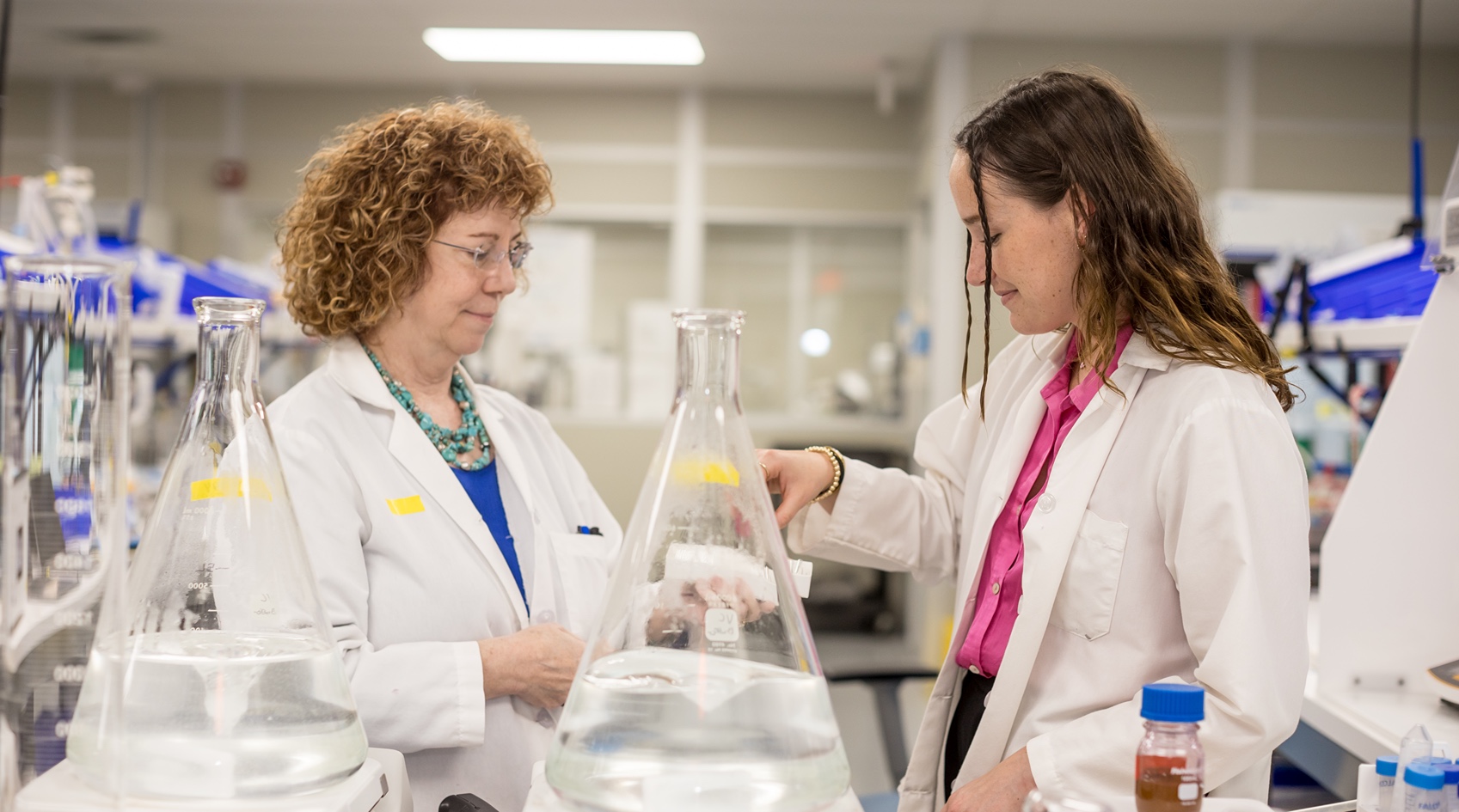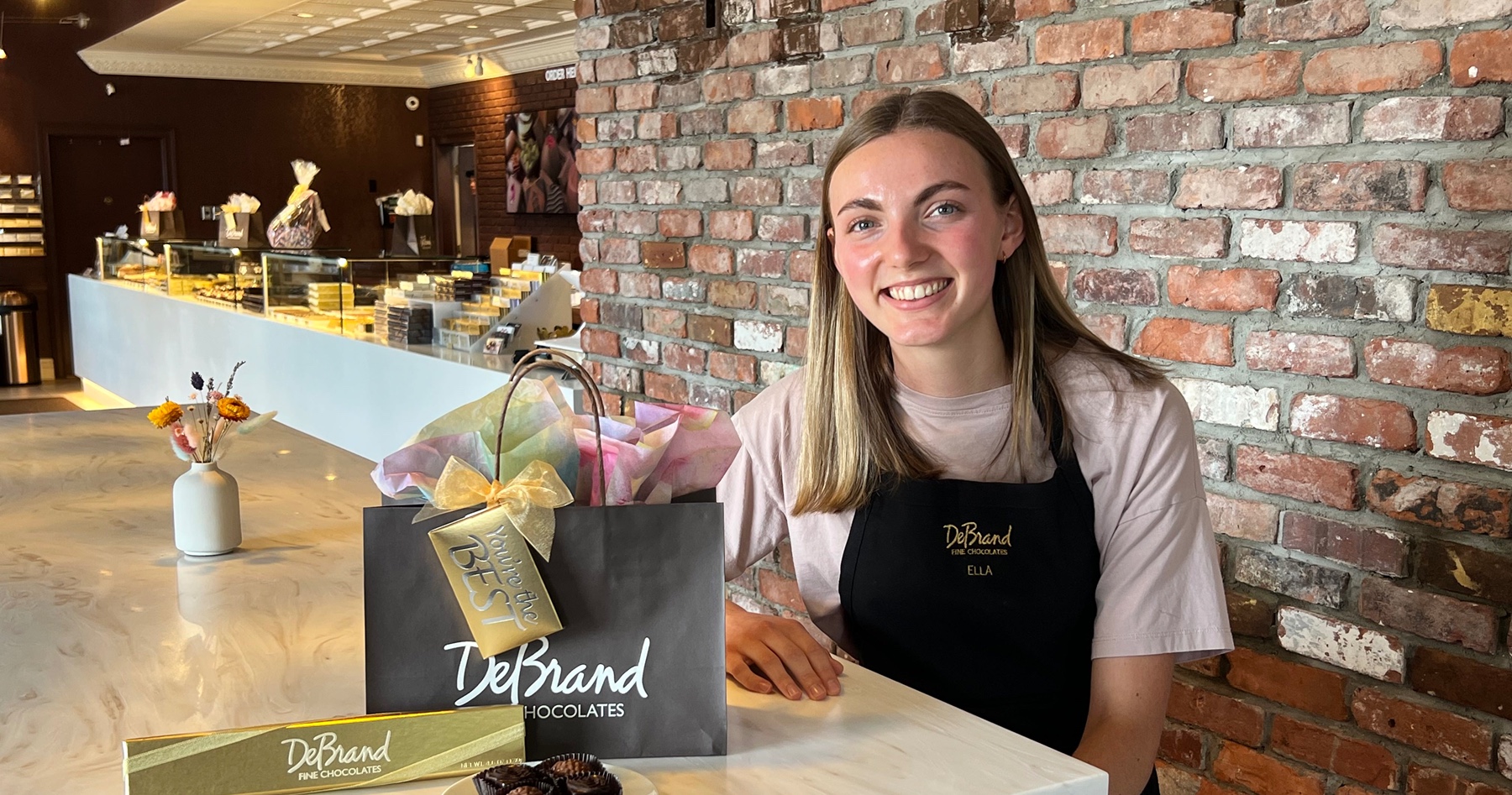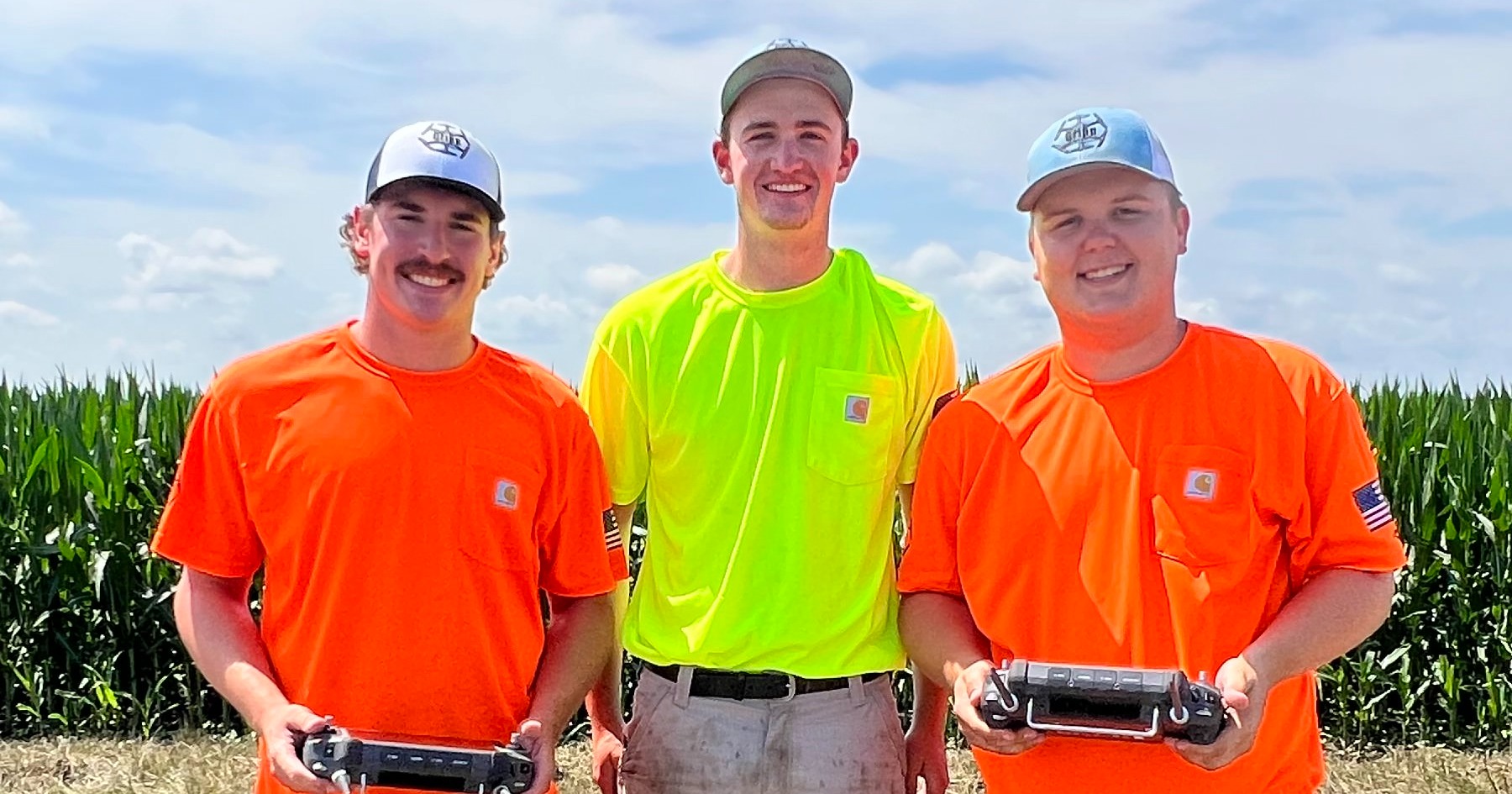
NRES student finds direction and passion through an eclectic summer internship
Every month of Sara Zukowsky’s internship this summer could be its own novel, which is fitting for the Natural Resources and Environmental Science (NRES) major minoring in English.
Zukowsky, originally from Westford, Massachusetts, was initially drawn to the middle of the country by Purdue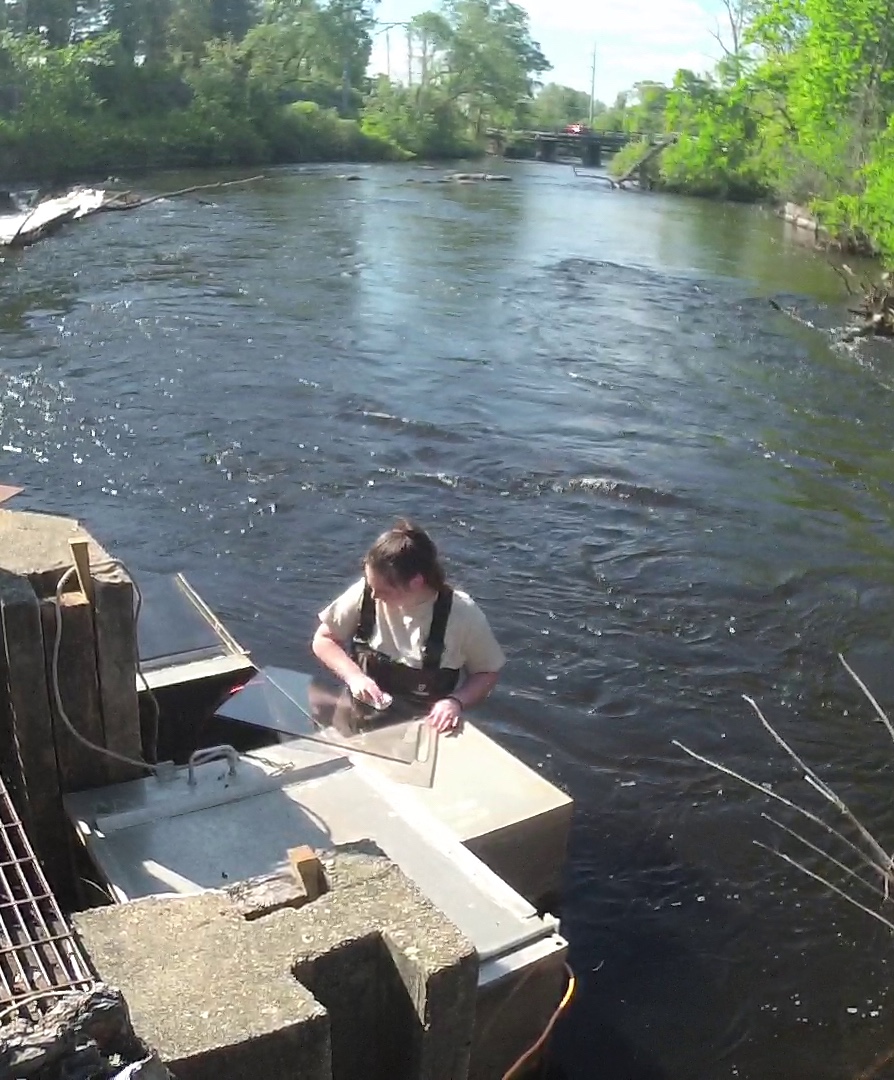
University’s English program. Since middle school, Zukowsky harbored a love of literature and writing, which is why she was surprised to feel suddenly drawn toward the sciences her freshman year.
“It’s a testament to Purdue’s academics that you can come in fully intending to study one thing and see all these opportunities in other areas and find yourself going in a completely different direction,” Zukowsky said.
In the landlocked town of West Lafayette, Zukowsky found herself thinking more and more about the ocean and the environment, missing it but also wondering how pursuing some of the majors at Purdue might allow her to engage with aquatic environments in meaningful and impactful ways. After her first semester, she switched to NRES, which is what led her to this summer’s internship with the Lowell Parks and Conservation Trust in Lowell, MA.
“I felt very drawn towards the idea of studying the ocean as a system, from what lives on the ocean floor to how populations impact aquatic environments, to how climate change is causing major shifts in our ocean ecosystems,” she explained. “You get this amazing sense of how everything is connected.”
This sense was furthered as she jumped from project to project, at first seemingly disparate but, Zukowsky came to realize, all deeply bound to principles of environmental conservation and sustainability.
Zukowsky’s first major venture was collaborating with the Massachusetts Audubon Society on an environmental education program. In conjunction with the group, Zukowsky developed a curriculum suitable for the K-6 grade crowd and visited students four days a week for most of July.
Through this experience, Zukowsky began to appreciate the importance of science communications and education. “Scientists can do all the research in the world, but it’s meaningless if they can’t tell others about it,” Zukowsky said. “Communicating with people of all levels of education, experience, and background is one of the ways we’re going to address problems like climate change.”
One of her favorite lessons was educating students about turtle populations and how scientists use telemetry to locate and track turtles. Scientists attach transmitters to their shells, which send signals to orbiting satellites, which in turn beam GPS information to the team of scientists. This allows researchers access to a large amount of data and also the ability to locate them during the nesting season.
And turtle nesting season brings us to Zukowsky’s next (and by all measures her favorite) summer project.
Zukowsky worked closely with Zoo New England’s head start program, which tracks Blanding’s turtles (an endangered species), ensuring the nesting mothers and their eggs are safe. Once the turtles hatch, roughly 100 hatchlings are taken into a lab. There they are fed and nourished, live in ideal environmental conditions, and kept safe from predators. In a year, once the turtles are ready for release, they are the size of a two or three-year-old and have a much better chance of survival in the wild. Almost immediately, Zukowsky developed a deep love of fieldwork at every stage of the process.
“I was in swamps, often in deep mud, stomping around in my waders, it was great!” Zukowsky reflected. “What I learned was that I want fieldwork to be a larger part of my education and possibly career. You’re out in the muck collecting data but you’re also part of the team interpreting it. I like the idea of being part of the investigation from start to finish.”
The last major initiative of Zukowsky’s internship took her out of the woods and into the city of Lowell as part of a team spreading awareness about urban forestry.
Large parts of downtown Lowell are heat islands, urban areas that experience higher temperatures than nearby rural areas due to a lack of vegetation and shade and an abundance of heat-retaining substances like concrete. Much like food deserts, heat islands disproportionately impact communities of low socioeconomic status.
In these areas, Zukowsky went door-to-door sharing information about the trust’s program to plant free trees for residents in heat islands.
“Having lots of trees and greenery throughout a city isn’t just about beautification, it’s really an environmental justice issue,” Zukowsky explained. “Areas with fewer resources are often the most devoid of greenery, which leads to less shade, higher AC costs, more health issues, and lower quality of place which can impact everything from mental health to home prices. Like everything else in the sciences, it’s never just about that one thing.”
Along with this appreciation for the interconnectedness of the natural world, Zukowsky also developed a deeper understanding of how she can make the most of her next three years with NRES and at Purdue.
While she doesn’t think K-12 environmental education is for her, Zukowsky said she’d like to learn more about how to effectively communicate complex science with a general audience. Zukowsky sees this as a natural way to blend her English studies skills with her passion for science. Purdue has a robust Student Chapter of Environmental Education,and even if she isn’t interested in going into classrooms, there are many ways Zukowsky knows to support their efforts.
She is also ready to jump at the first opportunity to conduct more fieldwork and get her hands dirty. “I had this idea that because I wasn’t near an ocean, I might only do the kind of science I wanted on summer internships like this. And yes, I did get to work with turtles, but I also performed a lot of other functions not directly related to the study of the ocean and still felt like I was doing interesting and important work.”
Keeping that in mind, Zukowsky said she is ready to explore what fieldwork might look like in the rivers and ponds around Purdue and consider some of the opportunities offered through Illinois-Indiana Sea Grant to work in the Great Lakes.
“I think taking opportunities like this are key because you get a sense for what you enjoy and what you dislike,” Zukowsky added.
I’ve found that I enjoy diversity in my day-to-day work and that I don’t want to be sitting all day behind a computer. Strangely enough, this experience opened my eyes to many opportunities that were waiting for me when I returned to Purdue.
- Sara Zukowsky, NRES major
